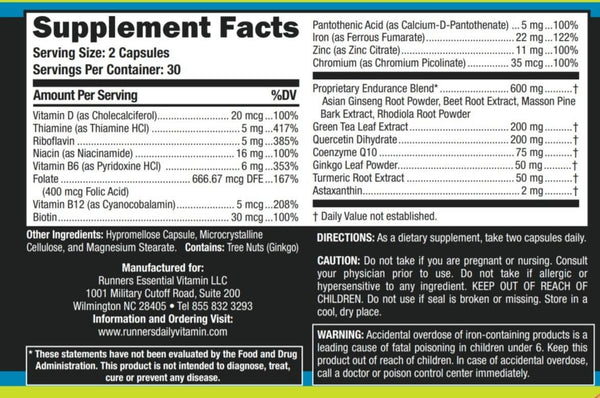
Diana L. Davis, RD •
Have you noticed feeling fatigue, tired or heavy legs during running, difficulty completing workouts, or not recovering well before the next session?
You may have low iron stores (as measured by low serum ferritin). In fact, many athletes experience some form of nutrition related fatigue that is related to one of the following:
- Under fueling in general, not eating enough energy (calories) to support training.
- Not taking in enough carbohydrate during the time just before, during or after training.
- Eating inadequate iron to support the demands of running and suffering from lower production of hemoglobin and red blood cells – that carry oxygen to working muscles.
Low levels of hemoglobin in the blood, or low levels of the iron storage protein ferritin, can have a profoundly negative impact on your ability to have successful workouts and races.
Low ferritin levels can cause poor performance, even when hemoglobin levels are normal.
Research with high school cross country runners has shown about 3% of boys and 40% of girls were iron deficient at the beginning of the season and even higher numbers were seen by the end of the season.
There are 3 primary reasons for why female runners are at greater risk for iron deficiency:
- dietary intake of iron tends to be very poor.
- menstrual cycles cause a substantial loss of blood. This increases the body's demand for iron.
- running training itself causes an additional loss of iron - this happens primarily through gastrointestinal blood loss.
Distance runners can suffer from impaired performance even at iron levels at the low end of the "normal" reference range (12 – 200 ng/ml for women; 12 – 500 ng/ml for men).
Athletes with ferritin levels at the low end of "normal" for the general population were found by researchers to exhibit many of the same symptoms as athletes with clinically low iron (<12 ng/mL).
Runners should aim for ferritin levels above 40 ng/mL to avoid fatigue and impaired performance from iron deficiency.
The best and easiest way to fix iron deficiency is the most obvious one: increase the iron sources you consume. This can involve increasing your dietary intake, taking an iron supplement, or preferably, both.
Meat, especially red meat is rich in heme-iron, the form of iron that is readily absorbed and least impacted by factors that impair the absorption of non-heme iron (found in grains, beans, and vegetables). In fact, eating varied meals that contain both heme- and non-heme iron improves absorption of the plant-based sources. Meat, poultry and fish all share this ability to improve absorption of non-heme iron foods.
There is a significant benefit of iron supplementation in iron deficient athletes, both when it comes to increasing serum ferritin levels and to increasing aerobic performance.
Runners Essentials Daily Vitamin Formula by Without Limits is designed to support the endurance athlete’s needs for key nutrients including iron. The form - Ferrous Fumarate is less likely to cause GI problems (constipation), and the dosage – 22 mg (or 122% of Daily Value) is intended to prevent diminishing iron stores. It is recommended that you take the 2 capsules with a Vitamin C rich juice to increase absorption, apart from meals, antiacids, tea, or Calcium supplements which can inhibit iron availability for absorption, or at bedtime for better GI tolerance.
Pair some text with a product to highlight features.






















